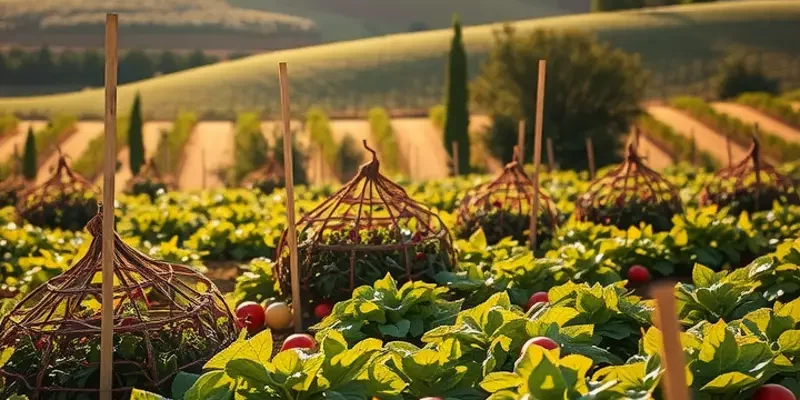Properly storing nuts is crucial for maintaining their freshness, flavor, and nutritional value. With the right techniques, you can significantly reduce waste, ensuring that your pantry stays stocked with delicious snacks for longer. Let’s explore effective storage methods to make your nut collection last while preserving their delightful taste.
Understanding Nut Freshness: Why It Matters

Nut freshness is essential for enjoyment as well as health. Nuts provide a rich source of nutrients, healthy fats, and protein. However, their quality declines if they’re not kept fresh. Stale nuts lose their crunch and natural flavors. They may develop unwanted off-flavors, rendering them less enjoyable.
When nuts go bad, it’s more than just a compromise in taste. Rancid nuts can pose health risks due to the breakdown of fats into potentially harmful compounds. Understanding the factors that impact nut freshness and how to avoid common storage mistakes helps keep nuts at their best.
Several factors influence the freshness of nuts: heat, air, and light are significant culprits. Exposure to these elements accelerates the oxidation of the oils in nuts. This oxidation process turns oils rancid, which impacts flavor and potentially harms your health. On the other hand, the natural oils in nuts need protection from these elements to preserve their quality.
Moisture, too, is an enemy of nut freshness. Nuts absorb moisture from the atmosphere, leading to a softened texture and diminished taste. This is particularly true in humid environments where you might store nuts without adequate protection against the elements.
Common storage mistakes often revolve around improper sealing and placing nuts in the wrong environments. Many simply reseal the original packaging without a proper airtight seal. This exposes nuts to air, hastening spoilage. Placing nuts in a pantry or countertop container under direct light also speeds deterioration.
To avoid these pitfalls, employ simple storage strategies. First, consider refrigerating or freezing nuts. Cold environments help slow down the oxidation process. When storing nuts in the refrigerator, use airtight containers to prevent them from absorbing odors from other foods. Freezing can extend the shelf life significantly, sometimes up to a year, without compromising their quality.
For those interested in sustainable practices, you can explore using eco-friendly storage solutions as a complement to preserving nut freshness. To learn more about environmentally smart options, explore eco-smart kitchen storage solutions.
Adopting these strategies can help ensure that your nuts remain fresh and tasty for a longer period. By focusing on proper storage and avoiding common mistakes, you’ll enjoy the full benefits of nuts while minimizing waste. Remember, successful nut storage is not only about maintaining taste but also about ensuring your health and the longevity of your pantry staples.
Storage Techniques for Maximum Freshness

To preserve the crispness and flavor of nuts, it’s essential to understand the nuances of storing each variety. Different types of nuts have specific needs for maintaining their freshness, flavor, and nutritional value.
Containers: One of the simplest ways to extend the shelf-life of nuts is by using airtight containers. Glass jars with rubber seals, metal tins, and sturdy plastic containers are excellent choices. The goal is to protect the nuts from exposure to air, which can lead to oxidation and rancidity. Using smaller containers for storage helps minimize repeated exposure to air each time you open them.
Storage Environment: Temperature plays a crucial role in nut storage. Store nuts in a cool, dark place to reduce their exposure to heat and light, which can accelerate spoilage. The pantry works for short-term storage, but for longer freshness, refrigeration or freezing is often recommended.
-
Refrigeration: The fridge protects nuts from humidity and heat while maintaining a fairly constant temperature. This can extend the freshness of nuts by several months. Make sure to place them in airtight containers to prevent them from absorbing moisture or odors from other foods.
-
Freezing: For the longest-lasting freshness, freezing nuts is the best method. Most types can easily be frozen without losing their texture or flavor. Just ensure they’re in a freezer-safe container. Nuts can usually last up to a year when frozen, maintaining both flavor and nutritional quality.
Duration Recommendations: Different nuts have varying shelf lives even under ideal conditions:
-
Pecans and Walnuts: High in oil, these nuts stay fresh for a few months at room temperature. Refrigeration can extend their life to about nine months. In the freezer, they last for up to a year.
-
Almonds: These can be stored in the pantry for up to four months. When refrigerated, their shelf life bumps up to about a year, similar to freezing.
-
Cashews and Macadamias: These nuts possess a high fat content, making them prone to becoming rancid more quickly. In the pantry, use them within two to four weeks. Refrigeration can extend their usability to up to six months, with freezing pushing it up to a year.
Additional Tips:
Be sure to note the best-before date on the package when you first purchase the nuts and adhere to it. If you’re aiming for eco-friendly storage consider eco-smart kitchen storage solutions. They offer options that maintain freshness while being environmentally conscious.
Checking for signs of spoilage is important. Rancid nuts will emit an off odor and taste bitter. If you suspect spoilage, it’s safest to discard the rest to avoid the risk of harmful mold. By tailoring your storage methods to the type of nut, you ensure that each kernel remains a delicious, wholesome snack, ready for any culinary adventure.
Final words
Storing nuts in the right conditions can extend their shelf life and maintain their delightful taste. By understanding the importance of freshness and utilizing proper storage techniques—from airtight containers to chilled spaces—you can ensure your nuts stay as delicious and nutritious as possible. Remember to keep track of your stash, label containers with expiration dates, and periodically check for any signs of spoilage. With these simple yet effective methods, you can enjoy your favorite nuts fresh while minimizing food waste.







